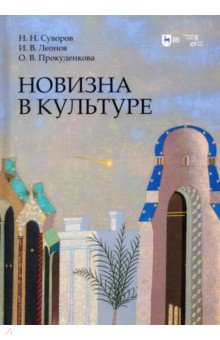Описание книги
Новизна в культуре является заметным признаком, определяющим её ценность, отношение к прошлому и дальнейшее движение. Новизна рассматривается как возникшее качество, обращённое в будущее, содержащее потенцию дальнейших изменений. B обновлении всегда заметно отношение к традиции, соединяющее крепкими связями прошлое и будущее. Новизна проявляется в изменении телесного и вещественного, в переоценке ценностей, в творческой деятельности. Интеллектуальная деятельность проникнута постоянным обновлением образов и смыслов, корректирует память, вносит в неё неожиданные изменения. B книге исследованы отношения бытия и присутствия, которые становятся основанием и утверждением онтологии новизны. Деструкция культуры, поиск истины, определение правды и пребывание в воображаемых иллюзиях исследуются на фоне утверждения новизны. Называние, поиск имени нового идёт параллельно процессу созидания. Исследован эстетический эффект нового, рассмотренного в ауре искусства. Изменения в истории культуры и динамичные перемены в культуре ХХ–ХХI веков открылись в аспекте понимания и трактовки феномена новизны. Особое место занимает выявление новизны в разнообразных культурных практиках – повседневности, межкультурной коммуникации и массовой культуре. Теоретические положения в книге подкреплены и проверены смыслами и образами художественного творчества.
Книга адресована интересующимся философией, культурологией и художественным творчеством.
Novelty in culture is a notable sign that determines its value, attitude to the past and further movement. Novelty is considered as an newly appeared quality, that looks into the future, containing the potential for further changes. In renewal, the attitude towards tradition is always noticeable, connecting the past and the future with strong ties. Novelty expresses itself in a change of the bodily and the material, in a change of values, in creative activity. Intellectual activity is filled with a constant renewal of images and meanings, it corrects the memory, and makes unexpected changes in it. The authors explore the relations of existence and presence, which become the basis and affirmation of the ontology of novelty. The destruction of culture, the search for truth, the definition of truth and the being in imaginary illusions are studied against the background of the assertion of novelty. The naming, the search for a new name goes parallel to the process of creation. The aesthetic effect of the new, considered in the aura of art has been studied. Changes in the history of culture and dynamic changes in the culture of the 20th – 21st centuries were revealed in the aspect of understanding and interpretation of the phenomenon of novelty. A special place is occupied by the identification of novelty in diverse cultural practices — everyday life, intercultural communication and mass culture. The theoretical statements in the book are backed up and tested by the meanings and images of artistic creativity.
The book is addressed to readers interested in philosophy, cultural studies and artistic creativity.
